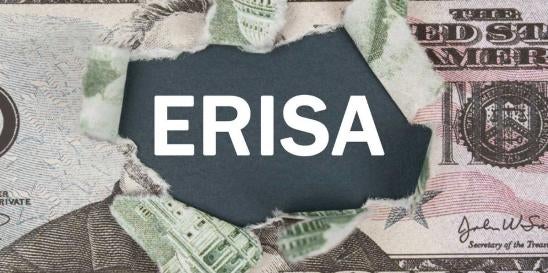In one of the first decisions evaluating fiduciary liability under new ERISA rules relating to ESG investments, a Texas district court has denied a motion to dismiss and allowed the employee’s class action to proceed.
Plaintiff in Spence v. American Airlines, Inc., Civ. No. 4:23-cv-00552-0 (N.D. Tex. February 21, 2024) alleged that his employer and its employee benefits committee violated ERISA’s prudence and loyalty duties and monitoring requirements by including in his retirement plan funds “that are managed by investment managers that pursued non-financial and nonpecuniary ESG policy goals through proxy voting and shareholder activism.” Several of the plans’ investment managers were alleged to have converted the plans’ investments and core index portfolios to ESG funds by engaging in proxy voting and shareholder activism that promoted ESG goals. In support of his claims, plaintiff cited to his employer’s annual ESG report and to public statements from plan investment managers that allegedly reflected support for investments that furthered ESG goals. Plaintiff also cited studies finding that ESG funds underperformed returns of the broader market.
Defendants had argued that plaintiff provided no meaningful benchmark against which the plans’ performance should be measured. The court rejected this argument and held that a plaintiff was not required to identify a benchmark at the pleading stage “given the inherent fact questions such a comparison involves.” Id. at *8. The court went on though to suggest that plaintiff had sufficiently identified a comparator benchmark “given the data provided on ESG funds’ established record of underperformance.” Id. at *9 (internal quotation omitted).
Defendants also argued that plaintiff failed sufficiently to plead any facts connecting the investment managers’ proxy voting to investment underperformance. But the court also rejected this argument: a plaintiff at the pleading stage “need not plead the exact connection between the investment managers’ alleged ESG proxy voting and the financial harm Plaintiff suffered as a result.” Id. at *8. One of the investment managers cast proxy votes that allegedly caused ExxonMobil and Chevron stock to fall. The complaint itself alleged nothing showing how the proxy voting, rather than something else, had caused the alleged underperformance. The court held that plaintiff had pled enough to link the two, because the proxy voting allegations, combined with the fact that “various sources have reported on the underperformance of ESG funds,” were enough to “infer a flawed process.” Id.
The court also held that plaintiff sufficiently pled a claim for breach of the duty of loyalty. Whether defendants’ company-wide ESG policy motivated the choice to invest in ESG-oriented funds, said the court, is a fact question that need not be resolved at the pleading stage. Id. at *11.
The court’s decision sets a low bar for plaintiffs alleging ERISA claims based on alleged ESG investments in at least two ways. First, the court accepts as sufficient plaintiff’s allegations that some analyses have found that ESG investments underperform other investments. Id. at 9 (“the Court finds that Plaintiff has pointed to at least some benchmark for inferring the quality of the investment managers’ performance given the data provided on ESG funds’ ‘established record of underperformance’”). This implies that a plaintiff alleging a duty of prudence/monitoring claim need only allege that an investment is an “ESG fund” to establish underperformance, at least at the motion to dismiss stage. Second—and this point is related to the first—what constitutes an “ESG fund” apparently can be based on public statements made by investment managers, regardless of whether those statements resulted in actions with respect to any funds at issue or whether any actions actually caused investment underperformance. Note that none of the funds held by plaintiff were denominated as “ESG funds.” They were instead typical stock and index funds. But the public statements of the investment managers, combined with the purported chronic underperformance of “ESG funds,” were enough according to the court to state a claim that the plans’ investments underperformed in violation of the duties of prudence and loyalty.
Jurisprudence on ERISA’s new ESG investing rules is not yet well-developed. But if the Spence court’s reasoning is adopted more widely, we would expect to see an increased number of cases surviving motions to dismiss and reaching discovery.






 i
i


